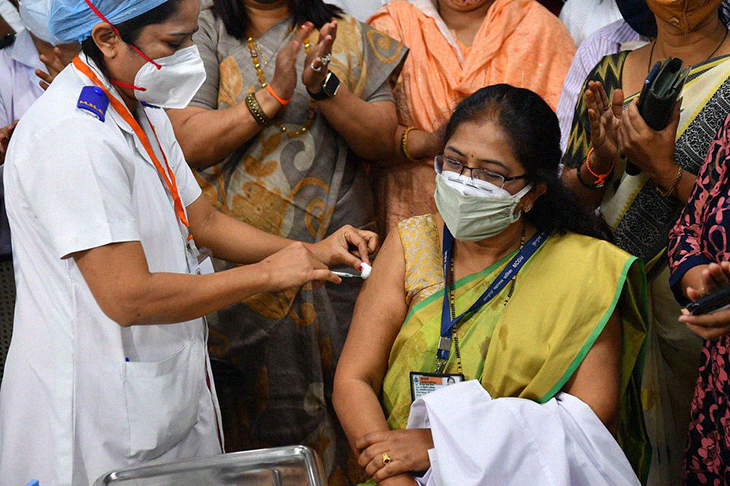
Countries all over the world are scrambling to get their hands on a Covid vaccine. The pandemic has been extremely difficult for everyone. Business have gone belly-up because tourism is at its lowest. Big corporations have closed their doors to new hires because they can no longer afford to shell out cash. And while there are a number of ani-vaxxers out there, everyone is now beginning to realize how health is extremely important. In fact, some have changed their opinions and have begun to see the importance of getting a vaccine.
Vaccine Facts
In countries such as Pakistan, researchers have looked into implementing the need for a vaccine. They are currently doing their studies and have discovered certain facts:
- A recent study has examined the effect of a covert Central Intelligence Agency (CIA) vaccination campaign and subsequent Taliban anti-vaccine propaganda on the rates of child vaccination in Pakistan.
- The said study found that child vaccination rates have actually decreased from 23 to 39 percent in some areas, especially those with the greatest electoral support for political extremist parties. The numbers were compared against regions with lower levels of support.
- The study results highlight the vital and potential impact of misinformation on public acceptance of vaccines. The findings could be relevant to improve the global uptake of COVID-19 vaccines.
It has been shown and proven how immunization prevents 4 to 5 million deaths every year from common diseases such as measles, influenza, diphtheria, polio, and even a whooping cough. The World Health Organization (WHO) has looked at the figures carefully and have made an estimate that “if global vaccination coverage improves,” this could actually save the lives of an additional 1.5 million people all over.
There has been considerable scientific and medical evidence that supports the safety and efficacy of vaccines to prevent disease. However, as said previously, some are still reluctant to get vaccination even when it’s already available for them. Experts have a term for this, and they call it vaccine hesitancy.
In 2019, the experts WHO see vaccine hesitancy as a threat to global health. A WHO vaccine advisory committee identified the main drivers for those who refuse to get vaccinated despite the present danger: mistrust, complacency, and difficulty acquiring vaccines. Then, there are the Anti-vaccine groups in the United States and Europe and some Islamic militant groups in Pakistan, Nigeria, and Afghanistan. Many are opposed to vaccines. Because they are considered to be anti-vaxxers, they tend to promote the dissemination of misinformation about vaccines. As a result, many have become skeptical as well.
There are adverse effects on the anti-vaccine propaganda in the immunization rates and potential unfortunate health implications. Many of these findings have not been well understood by the public. In fact, a group of researchers recently used a case study in Pakistan to investigate how disinformation can have an impact vaccine uptake.
The Truth about the Anti-Vaccine Propaganda
The case study detailed the plan to capture Osama Bin Laden in Pakistan in 2011. The CIA then had used healthcare workers to obtain DNA samples from children that were residing in a compound in the city of Abbottabad. They came in under the false pretense of offering them vaccinations. The CIA had hoped that this would provide proof of where Bin Laden’s hiding place was. Those working with the CIA at that time operated under the guise of providing hepatitis B immunizations to these kids. They had done this without the knowledge or consent of the Pakistani health authorities.
When this piece of information was disclosed in the CIA’s covert operation report in the United Kingdom’s Guardian newspaper, the Taliban did not take the news well. They retaliated and launched several anti-vaccine campaigns. Their goal was to undermine the credibility of actual vaccines and vaccination health workers.
The anti-vaccine propaganda that had run then claimed how the polio vaccination campaigns aimed to sterilize the Muslim population. They went so far as to accuse health workers delivering the vaccines as being CIA spies and that were in disguise. Taliban leaders also reported to the people that the vaccines they delivered actually contained pig fat, a big no-no for the Muslims. They spread this misinformation to everyone during Friday prayers in radical mosques, illegal radio shows, and radical newspapers. More importantly, Taliban leaders banned immunization drives. In July 2012, they even resorted to acts of violence against vaccination health workers. During this time, they had killed around 70 people.
Researchers published their findings then in the Journal of the European Economic Association. The study that they conducted examined data from the Pakistan Social and Living Standards Measurement household survey. This was administered by Pakistan’s Bureau of Statistics. The report contained the individual vaccination status data. It also focused on data from children living in places such as Balochistan, Khyber Pakhtunkhwa, Punjab, Sindh, and Islamabad. The figures comprised of 97 percent of the population.
The researchers examined immunization rates that had been verified by vaccination card records of 18,795 children. The age range consisted of 24 months or younger. The statistics looked into diseases such as polio, diphtheria-pertussis-tetanus (DPT), or measles from January 2010 to July 2012. The study then collected electoral data gathered from the 2008 elections. This had come before the disclosure of the CIA vaccine operation. Their goal was to quantify and identify the geographic distribution of support for the conservative Islamic political coalition MMA.
Then, the expert researchers also gathered data on the polio vaccination campaigns in Pakistan between 2008 and 2013. Their main goal was to compare vaccination rates across groups of levels of exposure to information on the vaccine ruse and geographic areas with different levels of support that were for Islamist parties.
Vaccination Rate Declines
Through careful research, they were able to come up with results that showed statistically significant decreases of 23 to 39 percent in vaccination rates between districts with the highest Islamic party support relative to districts with the lowest support. This came after the vaccine ruse was disclosed to the public. Moreover, the vaccination rates among girls declined as well by an additional 3 percent when this was compared to the boys’ vaccination rates. The researchers discovered that the decrease in the rates of vaccination with the most significant Islamic party support resulted in almost double in the average number of polio cases per district when compared with districts with the lowest support.
It is important to note that the study did have certain limitations. For example, changes in vaccine supply and under-reporting of vaccination status might have affected the results as well. In an interview made with Medical News Today, Dr. Andreas Stegmann, Ph.D., Assistant Professor in the Department of Economics at the University of Warwick, U.K., and one of the study’s authors outlined some of the studies strengths and limitations. He said, “One strength, is the relatively detailed data on children’s age and their immunization status, which allows us to trace the evolution of immunization rates in detail both over cohorts and across space.”
The key limitation, as he further explained, is that areas with higher levels of support for such parties might have been on a “different trajectory even prior to the disclosure. In this case, our estimates would effectively only pick up these pre-existing trends.” He also explains how “there are questions about the underlying mechanism (a decline in trust in health services and immunization services) for which we provide a number of different pieces of evidence, but which ultimately remains open to related, but different interpretations.”
Overall, the findings in the study show and suggest how anti-vaccine campaigns that have spread misinformation could have increased the chances of mistrust in medicine and has promoted skepticism among the people. This could eventually lead people affected not in agreement to immunization. There could likely be an increase in preventable diseases as well.
These results may not have had much of an impact years before. But lately, these are especially relevant and applicable during this time’s COVID-19 pandemic. Fact is, vaccine uptake is vital when it comes to achieving herd immunity. It could also fast-track the return to normalcy all over the globe.



